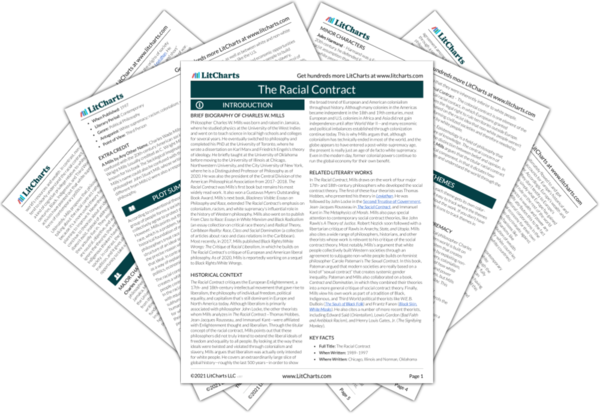Hobbes was the 17th-century English philosopher who first accounted for the origins of society through a in his 1651 book
Leviathan. He famously argued that people live “nasty, brutish, and short” lives in the , which he imagined as a state of war. As a result, Hobbes argued that people would choose to submit to a ruler in order to avoid the state of war. While he contended that the state of nature was a hypothetical concept, he also claimed that “ people” in the Americas were still living in it. suggests that Hobbes only considered the state of nature hypothetical for white people, whom he thought of as rational because they voluntarily chose to form societies. Because Hobbes erroneously thought that non-white people didn’t live in organized societies, he believed that they were not rational enough to escape the state of nature. In turn, he thought that white people were justified in imposing society on non-white people.
